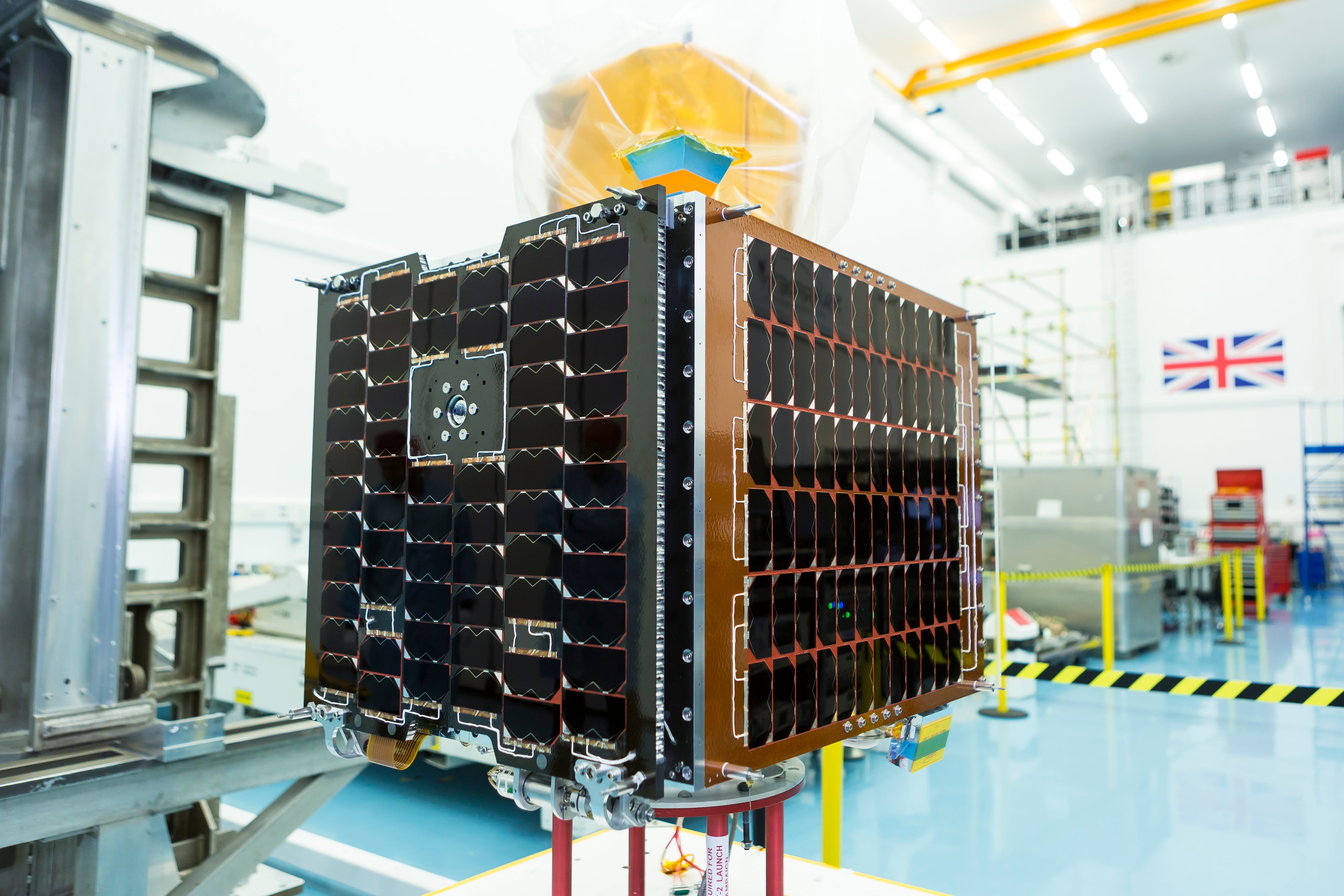PARIS ― France’s joint space commander has told lawmakers that the country’s satellites in orbit have been approached for inspection by foreign governments.
“Apart from development of directed-energy weapons capable of degrading the performance of our capabilities, the mastery of technology for rendezvous in space allows the close approach of space assets of other countries in full orbit,” Air Force Gen. Jean-Pascal Breton said. “Several of our satellites have have been approached in this way by objects of satellite-inspection class.”
The commander did not identify specific countries, but did say the inspections were conducted by “sovereign nations” capable of undertaking these actions.
“Strategies of contestation and denial of access is taking on new forms,” Breton told the defense and armed forces committee of the lower house National Assembly on Dec. 20. The the official minutes for this hearing were just recently published.
He called the capability to detect and identify the suspect of an unfriendly or aggressive act an “essential condition for our protection.” The capability to track exo-atmospheric space activity will be gradually strengthened to allow identification and classification of objects in orbits that are of interest to France, he added.
RELATED

He praised the current and forthcoming multiyear budget laws for providing a “real effort” in the space domain, particularly toward replacing satellites. The 2017 defense budget set aside just over €300 million (U.S. $373 million) in credit payments for the military space program, an amount similar to previous years. The 2018 budget has earmarked €325 million.
He noted the credit payments will climb with the deployment of new satellites, asserting that it is impossible to provide detailed figures because the next multiyear budget law is not yet confirmed.
France is fitting bimodal receivers on its equipment, using both the United States’ GPS and the European Galileo satellite system to boost resilience, he said.
An abundance of French weaponry uses GPS for targeting, he said, and the Air Force tends to rely on the navigation aid, except for “only certain missions.” No further details were given.
France plans to replace its eight-strong fleet of satellites with the same number in the coming years, with the renewal program starting this year, Breton said. The present and forthcoming multiyear budget law will invest a “not insignificant amount” in the replacement and improvement of capabilities, he continued.
The first in the three-strong CSO high-resolution optical satellite fleet is due to be launched by the end of this year, with the last in 2021, he noted. France is the sole owner of CSO, alongside Germany and Sweden, who have right of access. Talks are ongoing for additional partners.
France operates Elisa, an experimental electronic intelligence satellite, due to be replaced with an operational Ceres system in 2020, he said. A next-generation Syracuse IV system will be put into orbit to handle “an explosion” in communications due to the digitalization of combat systems.
These satellites will be “extremely hardened” as well as carry extra capacity to carry data, he said.
The military officer also told lawmakers France is seeking closer cooperation with strategic partners, particularly Germany, and that “specific themes” will be addressed with the intelligence-sharing Five Eyes countries: Australia, Britain, Canada, New Zealand and the U.S. Washington already provides access to certain data from its space capabilities, including its register of debris, he noted.
The next multiyear budget will allow for a focus on updating the capability for low-orbit surveillance, information systems and the study for surveillance from geostationary orbit.
Breton specifically spoke to the importance of international cooperation in space for the benefit of French military engagements. However, he added that there should be a balance between the sharing of information and capabilities and maintaining national sovereignty.
France took 45,883 pictures from space in 2016, 10 percent more than the previous year. The requirement is climbing due to the level of military engagement. An average of 120 pictures are taken each day from space.
“Space is a nation’s symbol of power,” he said. “It is a statement of its scientific, technological, industrial and financial strength. We can only congratulate ourselves that France is a real power in the space domain.”








